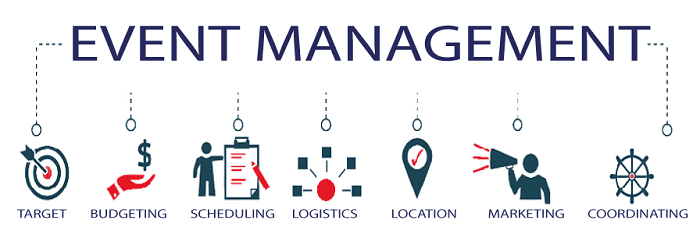Top 10 Courses After B.A.What is B.A.?B.A. is an abbreviation for Bachelor of Arts, a post-secondary degree program typically focused on the arts and humanities. It is a three-year program. Most schools require that students complete general education classes, such as math, science, and English, and major-specific classes, such as those in the student's chosen subject. The goal of the B.A. program is to provide students with a broad-based education, allowing them to develop an understanding of different cultures, eras, and topics. This is often accomplished through lectures, discussions, and research. Students may also have the opportunity to participate in internships and other experiential learning opportunities to gain work experience and professional skills. The B.A. degree can be pursued in many different areas of study, such as English, History, Psychology, Sociology, Anthropology, Political Science, and more. 
Students can also choose to specialize in a particular field, such as communications, journalism, or business. B.A. degrees are highly desirable for many different types of jobs. For example, many employers prefer to hire someone with a B.A. in communications to oversee their marketing efforts or a B.A. in psychology to help them understand their customer base better. Additionally, a B.A. can open the door to many different types of graduate programs, such as a master's degree in business or a Ph.D. in psychology. Overall, the Bachelor of Arts degree is an excellent way to gain an in-depth understanding of the humanities and the arts. It enables students to gain a broad knowledge base, develop critical thinking skills, and gain real-world experience through internships or other experiential learning opportunities. It is also a great way to open the door to graduate programs and professional opportunities. Importance of Course or a Degree in One's Life
Scope of B.A. Degree?B.A. is typically a three-year program that requires students to take courses in the humanities, social sciences, and the liberal arts. The core of a B.A. program is composed of courses that introduce the chosen field's history, literature, and philosophy. Most programs also require students to take classes in a particular concentration, such as English, history, sociology, psychology, economics, political science, or anthropology. A student may also take electives in other disciplines, such as foreign language, art, music, or computer science. A B.A. aims to give students a broad understanding of the humanities, social sciences, and liberal arts. This allows them to become well-rounded citizens who think critically and communicate effectively. The skills acquired from a B.A. degree can be applied to many fields, such as law, business, education, journalism, and public relations. Additionally, many employers prefer candidates with a B.A. degree because it signifies a well-rounded knowledge base and a commitment to academic excellence. In addition to academic courses, most B.A. programs include internships, research projects, and professional development activities. These experiences allow students to gain practical skills and knowledge, which can be beneficial when applying for jobs. A BA degree is an excellent choice for individuals interested in pursuing a career in the humanities, social sciences, or the liberal arts. It allows students to develop a broad understanding of the world while honing their critical thinking and communication skills. Additionally, a B.A. degree can open up many doors for students looking for a career in the professional world. The Top 10 Courses After BA1. Master of Arts (MA)A Master of Arts (M.A.) is a postgraduate degree often awarded to students who have studied a specific field of study in the humanities. M.A. degrees can be awarded in various areas, such as history, linguistics, literature, philosophy, political science, religious studies, sociology, and other humanities-related fields. To receive a Master of Arts degree, students must typically complete a rigorous program of study that includes coursework, comprehensive exams, and a thesis or dissertation. Depending on the school's requirements, a student may need to complete anywhere from 30-90 credit hours of coursework to be eligible for graduation. In some cases, the student will also need to complete a thesis or dissertation project to demonstrate their mastery of the subject. The curriculum for a Master of Arts degree often focuses on analyzing ideas, theories, texts, and research methodologies in the chosen field of study. Students can expect to gain a comprehensive understanding of a particular area of study, as well as an understanding of the research methods used in the field. Through their degree program, students can gain the skills and knowledge needed to excel in their chosen field. 
A Master of Arts degree can open the door to various career opportunities, such as higher education, research, government, and non-profit organizations. Earning an M.A. degree can also benefit those who wish to pursue a doctorate, as many Ph.D. programs require a Master's degree as a prerequisite. For those who have a passion for the humanities, a Master of Arts degree can be an invaluable asset. By completing an M.A. program, students can gain the skills, knowledge, and experience necessary to pursue a career in the humanities. 2. Master of Business Administration (MBA)The Master of Business Administration (MBA) is a professional degree that provides advanced education in business management. The MBA is one of the most popular and sought-after degrees in the business world. It is an internationally recognized, comprehensive degree that develops a student's knowledge and skills in business management. The MBA program requires a commitment of two to three years of full-time study, although some universities offer part-time and accelerated options. Most MBA programs cover business-related topics, including accounting, finance, marketing, operations, and organizational behavior. These courses teach students the fundamentals of business management, as well as advanced decision-making, problem-solving, and leadership skills. The MBA is designed to prepare students for the challenges of the business world. It provides students with the skills and knowledge necessary to become effective and efficient managers. Students learn to think critically, analyze data, and make sound business decisions. They also gain the communication and interpersonal skills needed to interact with colleagues and stakeholders. 
The MBA also provides students with a network of experienced business professionals that can help students find jobs, secure internships, and gain valuable insights into the business world. Students also gain an understanding of how to develop and manage a business plan, as well as how to lead and manage a team successfully. An MBA degree can open many doors for a student. Many employers look for MBA graduates, as they are seen as having the potential to become effective leaders. An MBA can also allow graduates to switch careers or start their businesses. The MBA is an invaluable asset that can help students reach their full potential and achieve their professional goals. It is a valuable investment that can help students succeed in their chosen career path. 3. Master of Journalism and Mass Communication (MJMC)Master of Journalism and Mass Communication (MJMC) is a postgraduate program that comprehensively understands modern journalism and mass communication principles, practices, and dynamics. It is an interdisciplinary program combining journalism and mass media principles with communication, public relations, advertising, and digital media practices. The program outlines the various aspects of the media industry, from reporting and editing to the production of different media forms. It focuses on developing skills necessary for effective communication in the media industry, such as writing, research, interviewing, video production, editing, and public relations. MJMC courses provide students with a strong foundation in media studies, news writing, and media law. 
Students are also taught the basics of media technology, including editing, audio, video production, and digital media. They also explore the history and development of the media industry and its impact on society. The program also covers topics related to current affairs, politics, entertainment, culture, and sports. Students are taught how to produce media content that is informative and entertaining. The program also educates students on the ethical considerations of media production and its effects on audiences. The program allows students to gain hands-on experience in media production. Students are often required to complete many hands-on projects, such as creating new programs, writing and editing stories, and developing public relations campaigns. In addition to providing theoretical knowledge, MJMC also prepares students for a career in the media industry. It is an ideal program for those who want to become journalists, editors, public relations specialists, media producers, and other professionals in the media industry. Overall, the Master of Journalism and Mass Communication program provides students with a comprehensive understanding of the media industry and its impact on society. It prepares students for a career in the media industry and other related fields. By equipping them with the skills and knowledge necessary for a successful career in the media, the program allows students to take advantage of the many opportunities available in the media industry. 4. Master of Fine Arts (MFA)A Master of Fine Arts (MFA) is a postgraduate degree awarded to students who have completed a specialized course of study in the fine arts. It is one of the highest degrees that can be earned in the fine arts. An MFA is typically a two or three-year program focusing on the fine arts, such as painting, sculpture, photography, filmmaking, and graphic design. The curriculum usually includes art history, studio art, and theory classes. MFA programs are designed to help students develop their artistic skills and build a professional portfolio. This allows them to demonstrate their proficiency in the fine arts and become competitive in the art world. Students can collaborate with fellow artists during the program and expand their knowledge. 
Additionally, they will be exposed to new techniques and have access to professional studios and equipment. The degree is often seen as the gateway to a successful career in the arts. It is an important step for those who wish to pursue a career in the visual, performing, or literary arts. With an MFA, graduates can expect employment as curators, art administrators, gallery owners, or teachers. The MFA is also useful for those who wish to pursue advanced degrees in art history, museology, or art therapy. It allows them to gain a deeper understanding of the arts, which can help them become better practitioners. The MFA is an important degree for those interested in the fine arts. It provides students with the skills and knowledge needed to succeed in art. Furthermore, it allows them to develop their artistic abilities and gain recognition in their chosen field. 5. Masters/P.G. Diploma in Digital MarketingMasters/P.G. Diploma in Digital Marketing is a postgraduate program that equips professionals with the knowledge and skills required to excel in digital marketing. It is an interdisciplinary program that combines the fundamentals of marketing, digital media, and technology to provide students with the necessary skills to use digital marketing tools effectively. The program covers various aspects of digital marketing, such as Search Engine Optimization (SEO), Social Media Optimization (SMO), Content Marketing, Paid Advertising, Website Design, Analytics, and Conversion Rate Optimization (CRO). The program also provides an in-depth understanding of digital marketing tools, including email marketing, web analytics, and marketing automation tools. The program provides hands-on experience through practical case studies and projects. This allows students to apply their theoretical knowledge to real-world scenarios. 
Additionally, the program helps students understand and implement digital marketing trends and techniques. The program also equips students with the skills to develop and execute successful digital marketing campaigns. It covers keyword research, user experience, and content optimization. Students also learn how to optimize the performance of digital campaigns by leveraging data and analytics. Master/P.G. Diploma in Digital Marketing is designed to help students develop the required skills to succeed in the digital marketing industry. It provides a comprehensive understanding of digital marketing strategies, tools, and techniques. Additionally, the program allows students to put their learning into practice through practical projects and case studies. Ultimately, the program helps students gain the skills and knowledge required to become successful digital marketing professionals. 6. LLBLLB stands for Legum Baccalaureus, which is Latin for Bachelor of Laws. It is an undergraduate law degree that many universities in the United Kingdom and other Commonwealth countries award. To obtain an LLB degree, students must complete a three or four-year program of study, depending on the university. The LLB program covers various topics and subjects, including criminal law, constitutional law, business, and corporate law, international law, legal writing, and legal research. It also introduces students to the principles of legal argumentation and analysis. During the program, students learn how to interpret laws and apply them to specific legal problems. They also gain an understanding of how laws are created and enforced. In some universities, students may also be required to complete a dissertation to obtain the LLB degree. 
This may involve researching a specific legal issue and writing a paper based on their findings. At the end of their program, students must pass an examination to be awarded the LLB degree. Depending on the university, this may be a national or university-specific exam. The LLB degree is an important qualification for those wishing to pursue a career in law. Many law firms and government agencies require applicants to have an LLB degree before being eligible for a job. The degree is also a prerequisite for admission to the legal profession in many countries. In conclusion, the LLB degree is an undergraduate law study program offered by many universities in the U.K. and other Commonwealth countries. It is designed to give students a comprehensive understanding of the various law areas and provide them with the skills they need to practice law. It is also a prerequisite for admission to the legal profession in many countries. 7. JournalismJournalism is an exciting field that offers an array of career opportunities. After completing a Bachelor's degree, one may pursue a Journalism course to gain a deeper understanding of the profession and hone their reporting and writing skills. The Journalism course typically focuses on the history of journalism and its development in the modern age. Students will learn about the ethical and legal issues that affect the news industry and the fundamentals of news writing and reporting. They will also explore the different platforms used in the industry, such as online, television, radio, and print. In addition, students will learn how to research and investigate stories effectively and develop strong sources and contacts. They will also understand the importance of accuracy and objectivity in the news and the use of multimedia resources in reporting. 
The course will also cover the basics of newsroom management, including budgeting, scheduling, and editing. Students will learn to develop story ideas and work with editors to produce quality stories. They will also be exposed to different types of multimedia reporting, such as photography and audio-visual media. Finally, the course will focus on the importance of digital media and its role in the news industry. Students will learn to use digital tools and platforms to create and disseminate news stories and engage with readers and viewers. Overall, the Journalism course is an excellent way for students to understand the news industry comprehensively and develop the critical skills needed to succeed in the field. 8. Creative Writing CoursesCreative writing courses are designed to help people explore their creativity and develop their skills in the art of writing. They offer a range of activities to help participants enhance their writing, hone their craft, and learn from experienced professionals in the field. Many courses will focus on a particular genre, such as fiction or non-fiction, or a specific writing area, such as poetry. The courses can range from introductory classes to more advanced workshops. They often feature a combination of lectures, discussions, and writing exercises. In an introductory creative writing course, students learn the basics of writing, including grammar and punctuation, and the principles of narrative structure and character development. They also learn to develop their ideas into coherent stories or poems. More advanced courses may cover dialogue, description, and point of view. Students may also study the works of famous authors and learn how to critique and edit their work. In addition, they may learn about the writing process from start to finish, from idea generation to the finished product. Creative writing courses can also benefit those with experience writing, as they can help them hone their skills and develop new ones. They can also be valuable for those who want to pursue a career in writing, as they provide the opportunity to network with other writers and gain insight into the publishing industry. Overall, creative writing courses offer a great way for aspiring writers to explore their creativity, develop their skills, and gain valuable insight into the world of writing. 9. Graphic DesignGraphic design courses are a great way to learn the fundamentals of the design industry. Graphic design is the art of creating visual content to communicate messages. It uses type, images, color, and other elements to create a unified design. Graphic design courses provide students with the skills they need to create a compelling visual experience that can be used in various ways. Graphic design courses typically cover various topics, including design theory, typography, color theory, composition, visual communication, and more. Students learn how to create effective design solutions that are suitable for a variety of media and contexts. They also develop an understanding of the principles of good design and how to apply them to create visually appealing designs. Graphic design courses also teach students about software programs such as Adobe Photoshop, Illustrator, and InDesign. These programs allow students to manipulate images, create layouts, and design logos, websites, and other marketing materials. 
Students also learn how to use these programs to produce professional-looking projects. Graphic design courses cover project management, branding, and marketing topics. This knowledge is essential for those who want to become successful graphic designers. Students learn to manage projects, create and execute successful strategies, and build a strong portfolio. Graphic design courses are essential for all aspiring graphic designers. These courses give students the skills and knowledge they need to create successful designs. With a good understanding of design principles and software, students can create visually appealing projects that can be used in various contexts. Anyone interested in pursuing a career in graphic design should take a graphic design course. 10. Event ManagementEvent Management Courses are designed to give students the skills and knowledge necessary to plan and coordinate successful events. Event management courses may focus on various topics, including marketing, planning, budgeting, and logistics. The courses can also help students develop their organizational and presentation skills, which are essential for successful event management. Event management courses teach students the various aspects of event planning, from developing the concept and the budget to managing the event on the day. Students learn to identify their target audience and develop strategies to reach them. They also learn how to create a timeline for the event and develop plans for managing the various tasks involved. 
Additionally, students learn how to manage communications with vendors and stakeholders and coordinate with media outlets and sponsors. Event management courses can be taken by anyone interested in the field. This could include students pursuing degrees in marketing, communications, or business. The courses can also benefit professionals in related fields such as hospitality, public relations, and event planning. In addition to teaching the basics of event management, courses often provide students with hands-on experience. This includes learning to create and manage an event budget, develop a media plan, and interact with vendors. Additionally, students may be able to attend events, allowing them to observe firsthand the various tasks associated with event management. Students can gain the knowledge and skills needed to plan and coordinate successful events by taking event management courses. From budgeting and marketing to logistics and communications, these courses provide students with the skills necessary to be successful in the field. Whether a student or a professional looking to expand your knowledge, event management courses could be the perfect way to get started. ConclusionThe mentioned above 10 courses after B.A. provides students with the knowledge and skills to pursue a career in their respective field. With the right degree, you can open the doors to many job opportunities and have a successful career. So, choose the best course after your B.A. that aligns with your interests and career goals.
Next TopicTop 10 Tourist Places in India 2021
|
 For Videos Join Our Youtube Channel: Join Now
For Videos Join Our Youtube Channel: Join Now
Feedback
- Send your Feedback to [email protected]
Help Others, Please Share









